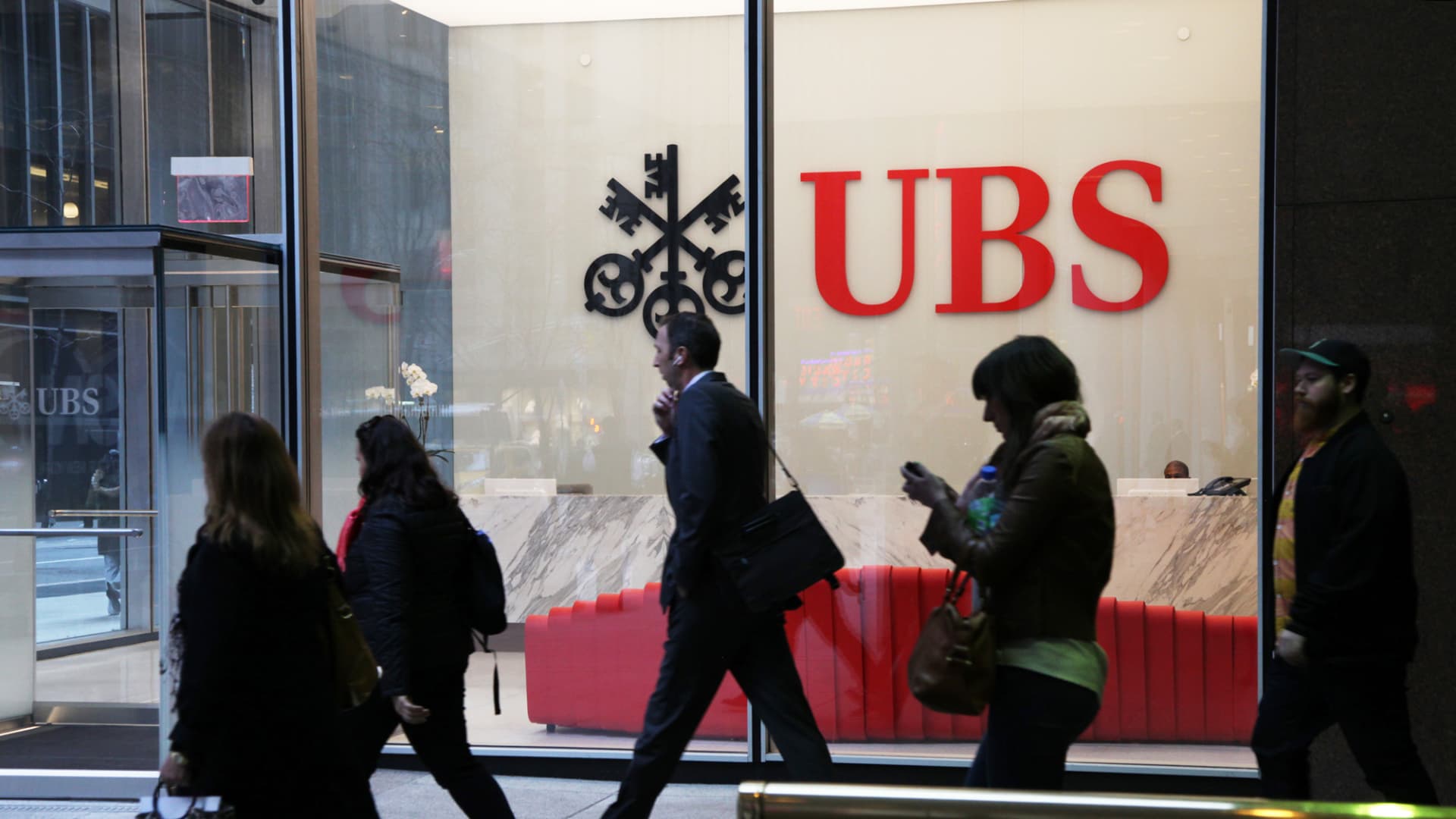UBS on Tuesday missed expectations for the second quarter of 2022 as its wealth management and investment banking divisions saw falling client activity on the back of the global market downturn.
The Swiss bank posted a net profit attributable to shareholders of $2.108 billion, below analyst expectations aggregated by the company of $2.403 billion.
It marks a 5% rise from the $2 billion reported during the same period last year, when the flagship wealth management business saw a significant windfall from wealthy investors, and follows a strong first-quarter that saw the group post a net profit of $2.136 billion.
“The second quarter was one of the most challenging periods for investors in the last 10 years. Inflation continues to be high, the war in Ukraine is ongoing, as are strict Covid policies in parts of Asia,” UBS CEO Ralph Hamers said in a statement. “In these uncertain times, our clients rely on our powerful ecosystem to navigate markets and invest for the long term.”
Other highlights for the quarter:
- Total revenues hit $8.917 billion, compared to $8.897 billion for the same period last year.
- Return on tangible equity stood at 16.4%, versus 15.4% a year ago.
- CET 1 capital ratio, a measure of bank solvency, reached 14.2% versus 14.5% in the second quarter of 2021.
Investment banking revenues slide
Investment banking revenues came in at $2.094 billion, down 14% from the same period last year.
In its report, the bank highlighted a $1.121 billion fall in net fee and commission income, mainly reflecting a “decrease in underwriting fees, particularly in Equity Capital Markets, and a decrease in net brokerage fees due to lower levels of client activity in Global Wealth Management and the Investment Bank.”
“Investment fund fees decreased, reflecting negative market performance and lower performance fees, and revenues from merger and acquisition transactions also decreased,” the report added.
Although the wealth management business took a hit from a broad decline in markets, Hamers said this had been largely offset by rising interest rates, with the U.S. Federal Reserve embarking on an aggressive hiking cycle in a bid to reel in inflation.
“On our recurring revenues, you see a decrease because of the level of the markets having gone down. You see on the transaction revenues a decrease as well because clients have been sidelining their investments,” he told CNBC’s Geoff Cutmore on Tuesday.
“However, you see a 24% uptick in net interest income on the back of rising rates, and as a consequence of that, the overall revenues in the wealth management business for the quarter were only -2% in very difficult circumstances.”
The logo of Swiss banking giant UBS.
Fabrice Coffrini | AFP | Getty Images
As market declines accelerated across equity and fixed income in the second quarter, the bank’s wealth management division saw muted net new fee-generating assets of around $400 million globally, though inflows were over $3 billion net positive in Asia-Pacific.
“On the one side, we saw already for a couple of quarters the trend of clients being lower on transactions, holding back on transactions,” Hamers told CNBC on Tuesday.
“On the other side, we’ve seen specifically this quarter, really big net new fee-generating assets coming through – $3.3 billion in Asia-Pacific – which basically shows you that clients are moving away from transactions into mandate business, and that’s been always part of our strategy.”
The asset management business also saw $12 billion of outflows, primarily from equities.
Hamers said he was a little more positive on the macroeconomic and market outlook in Asia toward the end of the third quarter, when more clarity has been established about the political situation in China, meaning a firming up of economic policies and the possibility of further lifting of Covid-19 restrictions.
Image and article originally from www.cnbc.com. Read the original article here.

